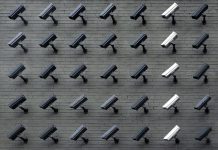Russian meddling in our elections is bad enough.
But if groups of tech-savvy government mandarins are able to infiltrate our social media to disseminate propaganda and disinformation, they are capable of going further.
How about messing with our electrical grids? Tampering with our water? Accessing into top-secret military data? Hacking financial institutions or school records? Sabotaging nuclear reactors?
If you think this could not happen, rest assured it already has.
Director of National Intelligence, Dan Coats, warned on Friday that almost two decades after the September 11, 2001 attacks, “warning lights are blinking red again” for a devastating cyber assault on critical U.S. infrastructure, adding:
“Today, the digital infrastructure that serves this country is literally under attack.”
He said China, Iran, and North Korea are daily waging cyber assaults on federal, state, and local government agencies, U.S. corporations, and academic institutions.
The worst offender, though, is Russia.
Coats stated:
“Russia has been the most aggressive foreign actor, no question.”
Speaking at the Hudson Institute the same day the Department of Justice (DOJ) indicted 12 Russian military intelligence officers on charges of hacking into Hillary Clinton’s and the Democratic National Committee (DNC)’s server, Coats compared the activity to “alarming activities” U.S. intelligence agencies received before al Qaeda’s 9/11 attack.
According to Coats, China is particularly interested in military and industrial secrets, and has “capabilities, resources that perhaps Russia doesn’t have.”
Russia, however, seeks to undermine U.S. values and democratic institutions, which it came closer to doing Monday when Donald Trump sided with Russian president Vladimir Putin over our own intelligence agencies regarding Russian meddling in the 2016 American presidential election.
About the 12 indictments and Russia’s impact on our future elections, particularly the upcoming mid-terms, Coats explained:
“Focusing on the potential impact of these actions, on our midterm election, misses the more important point: These actions are persistent, they’re pervasive, and they are meant to undermine America’s democracy on a daily basis, regardless of whether it is election time or not. Russia actors and others are exploring vulnerabilities in our critical infrastructure as well…What’s serious about the Russians is their intent. They have capabilities, but it’s their intent to undermine our basic values, undermine democracy, create wedges between us and our allies.”
Based on Donald Trump’s performance at the NATO summit last week, it appears as though those efforts are coming to fruition.
Although, according to Coats, the country is “not yet seeing the kind of electoral interference in specific states and in voter databases that we experienced in 2016,” he cautions:
“We fully realize that we are just one click of the keyboard away from a similar situation repeating itself.”
Speaking before the meeting between Trump and Putin occurred, Coats expressed what he wished would be conveyed to Putin if he were meeting with the Russia president:
“My message would be: We know what you’re doing, and we know you know what you’re doing and what we’re doing. If your goal is to strengthen Russia in the proper way, we can cooperate with you. But if you want to stay in this tit-for-tat, we’re going to beat you.”
That did not happen.
Instead, the president failed to uphold his oath to “protect and defend the Constitution and faithfully execute the office of President of the United States.”
So what are we doing about circumventing the next round of cyber attacks?
Five months ago, ousted Secretary of State, Rex Tillerson, confirmed the United States is still vulnerable to similar meddling.
Tillerson told Fox News:
“Well, I don’t know that I would say we’re better prepared (than in 2016) because the Russians will adapt as well. The point is if it’s their intention to interfere, they’re going to find ways to do that. And we can take steps we can take, but this is something that, once they decide they’re going to do it, it’s very difficult to preempt it.”
Asked whether he thought Russia would interfere again, Tillerson said:
“I don’t know. I hope they don’t.”
Last August, Trump’s cybersecurity coordinator, Rob Joyce, told CBS News the United States’ cybersecurity defense force is understaffed by about 300,000.
In January, President Trump refused to implement Russian sanctions Congress compelled him to sign into law.
This May, National Security Adviser, John Bolton, stated via memorandum the position of White House cybersecurity coordinator is no longer necessary because lower-level officials have already made cybersecurity a “core function” of the president’s national security team.
Image credit: Techlicious





